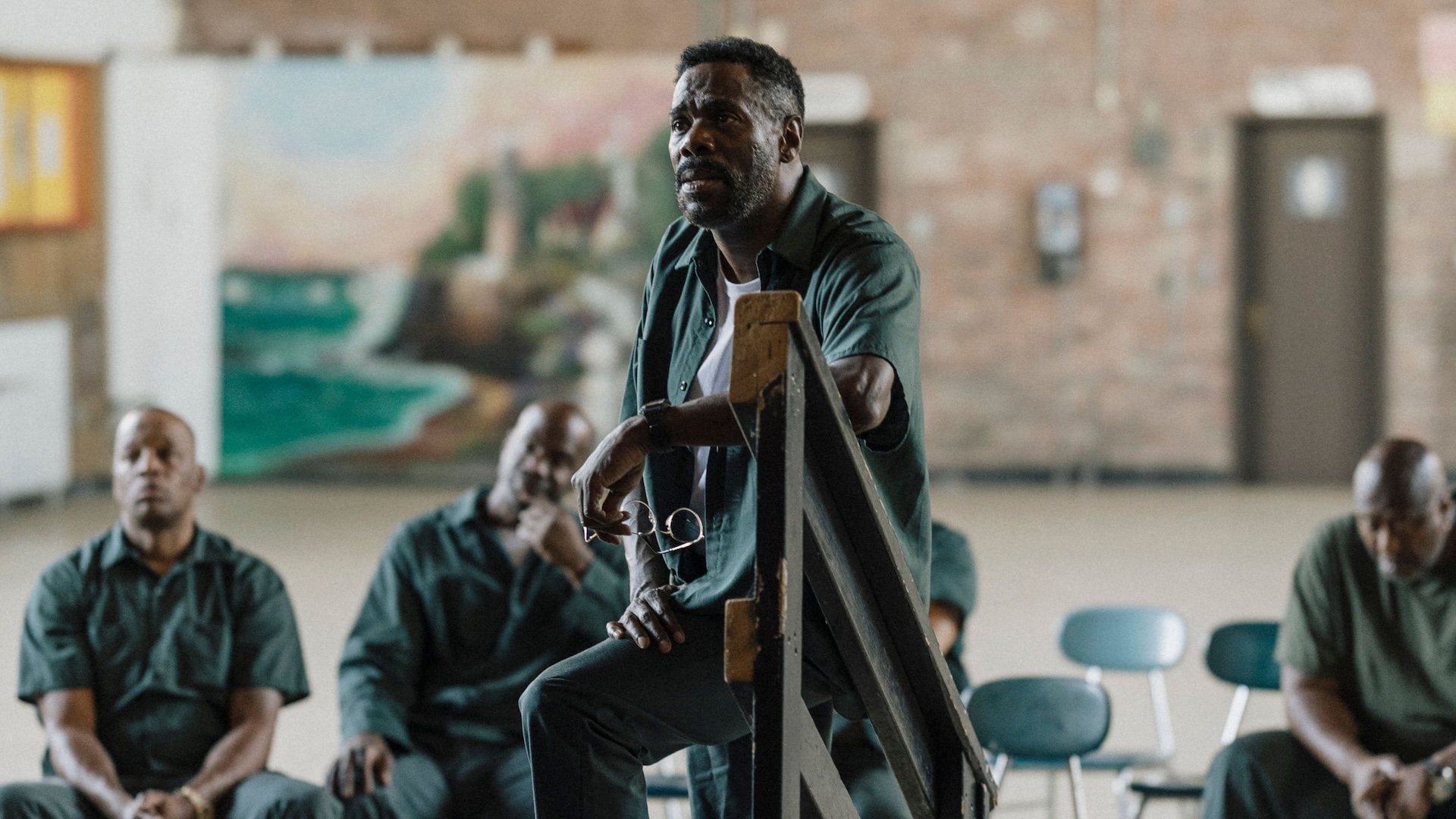“I was lost, I was desperate and broken
Wounded heart and the wounds were still open
That’s the way you found me.”
Israel Houghton, “Sing Redemption’s Song” (2009)
In North Park Theological Seminary’s School of Restorative Arts, a unique degree program prepares both free and incarcerated students for “ministries of restoration in contexts susceptible to violence.” With the scheduled closures and rebuilding of Stateville and Logan correctional facilities and the relocation of incarcerated residents, the future of the program is currently uncertain. During this (hopefully temporary) hiatus, Covenanters can gain insight into another model of restorative arts through the feature film Sing Sing, an A24 drama playing in select theaters for a limited time.
Starring and co-produced by Oscar-nominated actor Colman Domingo (Rustin, Selma, Fear the Walking Dead), Sing Sing depicts the real-life story of John “Divine G” Whitfield, an unjustly incarcerated man who finds sanctuary in Rehabilitation Through the Arts (RTA), a theater program inside Sing Sing, the maximum security prison in upstate New York. The film offers an uncanny level of verisimilitude compared to other prison films; not only was it filmed on location in the actual prison, but most of the actors in the film are formerly incarcerated actors from the RTA program playing fictionalized versions of themselves.
Sing Sing is an adult drama with emotional complexity and high stakes. Though the threat of violence simmers under the surface of many of their interactions, we view the residents of Sing Sing through a kaleidoscope of emotional states. We witness them in curious bemusement, bitter disappointment, repressed anger, and at times, unbridled joy. Unlike others of the genre that frame the prison as a jungle of violence, Sing Sing gives its actors room to breathe.
Clarence “Divine Eye” Maclin, playing himself, is an especially compelling figure, and the evolution of his relationship with Divine G is what undergirds the film with the requisite emotional heft. I wouldn’t be surprised if Maclin earns a supporting actor nod from the Academy; his work here is just that good. There’s a moment early in the film where a confrontation between the two men heats up, and Divine Eye lashes out, using the n-word. “We don’t say that word here,” says Divine G. “We say ‘beloved.’”
That initial disagreement serves as an overarching metanarrative anchoring the rest of the film. Sing Sing is about the struggle of men to see themselves as truly beloved after a lifetime of conditioning by systems outside of their control that label them as anything but. This is one of the many reasons Christians of all stripes should see the film because it serves as a compelling metaphor for the process of sanctification—learning to see ourselves through God’s eyes, from God’s model of beloved community rather than the world’s metrics of external success.
As rehearsing, preparing, and staging the play continues, the relationship between the two Divines begins to evolve. Without giving away any spoilers, something of a role reversal happens, and it’s perhaps one of the most heartbreaking developments of the film. Colman gives an understated performance as a man stripped of artifice, someone who perhaps was not fully the man he believed himself to be.
In this way, we see a living portrait of the Apostle Paul’s dilemma in Romans 7, where the things he wants to do he can’t quite bring himself to do, but of course, the thing he doesn’t want to do, he finds himself doing. All of us in the faith, whether seasoned leaders or neophyte beginners, have moments where we falter, where we fail to live up to the faith that we profess.
But what the Bible teaches us—and what Sing Sing shows in vivid, compelling detail—is that it’s never too late to return, to come back, to embrace hope and love. Like Andy and Red in The Shawshank Redemption, the relationship between Divine G and Divine Eye gives us signposts of hope that transcend our limitations. As Paul wrote in 2 Corinthians 4:17, our circumstances—no matter how extreme—are light, momentary distractions in the long shadow of eternity. We are beckoned toward hope and love, not in spite of them but because of them.
“Come, let us return to the Lord,” wrote the prophet to the unrepentant people of Israel in Hosea 6. They might have appeared hopeless on the surface, but God was using Hosea to get their attention, to tell a story of heartbreak and redemption that could pierce the facade of their hardheartedness.
Despite the film’s eight-year development process, I consider it an act of divine providence that this movie was released during the final stretch of a heavily divided American election where every issue is excessively politicized. No matter where you stand on criminal justice reform or mass incarceration, Sing Sing can help reorient you away from the politics of fear and back toward hope.
In this way, all of us Christians can join in together, echoing the chorus of the Israel Houghton song quoted above:
“And I will sing to you / For all that you are, and all that you’ve done for me / As long as I live I will sing redemption’s song.”














